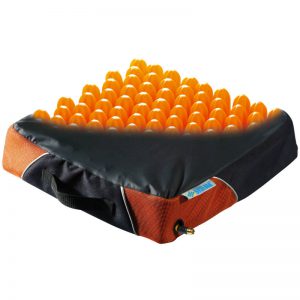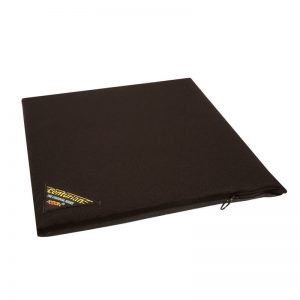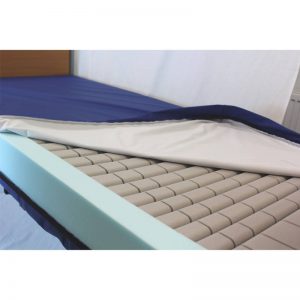Pressure ulcers, often called “pressure sores” or “bed sores”, are damage to the skin and underlying tissue, caused by a sustained period pressure on the skin. Sustained pressure on an area of the skin can impair the blood supply to the area, which can lead to a pressure ulcer.
Anyone can develop pressure ulcers, however they are most common in people who have restricted mobility. People who are seriously ill, have a neurological condition, or have impaired mobility at considered to have a higher risk of developing pressure ulcers. If a person is in bed, or sat in a chair, for extended periods of time, they should be aware of the possibility of pressure ulcers developing and take appropriate preventative measures.
Use of equipment, for example mattresses or cushions, which are not specifically designed to provide pressure relief, can lead to pressure ulcers. A lack of nutrition can increase the risk of developing ulcers, so for this and many other reasons, people should eat a balanced nutritional diet and keep well hydrated. Moisture on the skin can also increase the risk of developing pressure ulcers.
Symptoms of Pressure Sores
Early Symptoms:
Some of the early symptoms of a pressure ulcer may include:
- Colour changes or discolouration of the skin
- Variations in heat of the skin
- Variations in firmness of the skin
- Pain or itchiness in the affected area
Later Symptoms:
- A blister or open wound – this is known as a “category two pressure ulcer”
- a deep wound that reaches the deeper layers of the skin – known as a “category three pressure ulcer”
- a very deep wound that may reach the muscle and bone – know as a “category four pressure ulcer”
If you, or someone you’re caring for, has symptoms of a pressure ulcer, you should seek medical advice from a healthcare professional. You can read the NHS advice on pressure ulcers here.
Prevention of Pressure Sores
While it can be difficult to completely eliminate the risk of developing a pressure ulcer, there are several measures you can take:
- Eat a healthy, well balanced diet
- Keep properly hydrated
- Not smoking
- Regularly change your position
- Check your skin regularly for any early signs of a pressure ulcer
- Consider using a mattress or cushion specifically designed to provide pressure relief
Pressure Relief Cushions
People who spend long periods of time sat in chair, whether it’s a wheelchair, riser recliner or other type of seating, can be at risk of developing pressure ulcers.
We sell a wide range of pressure relief cushions, suitable for use in different circumstances:
-
 Polyair Pressure Relief Cushions£453.12 – £505.91
Polyair Pressure Relief Cushions£453.12 – £505.91 -
 Action Centurian Cushion£321.80 – £353.26
Action Centurian Cushion£321.80 – £353.26
You can view our full range of pressure relief cushions here – https://sumedinternational.com/medical-cushions/
Pressure Relief Mattresses
If you’re spending a period of time immobile in bed, a pressure relief mattress can help reduce the risk of developing a pressure sore:
-
 Integrity Static Plus Mattress£336.00 – £672.00
Integrity Static Plus Mattress£336.00 – £672.00
You can view our full range of pressure relied mattresses here – https://sumedinternational.com/medical-mattresses/
